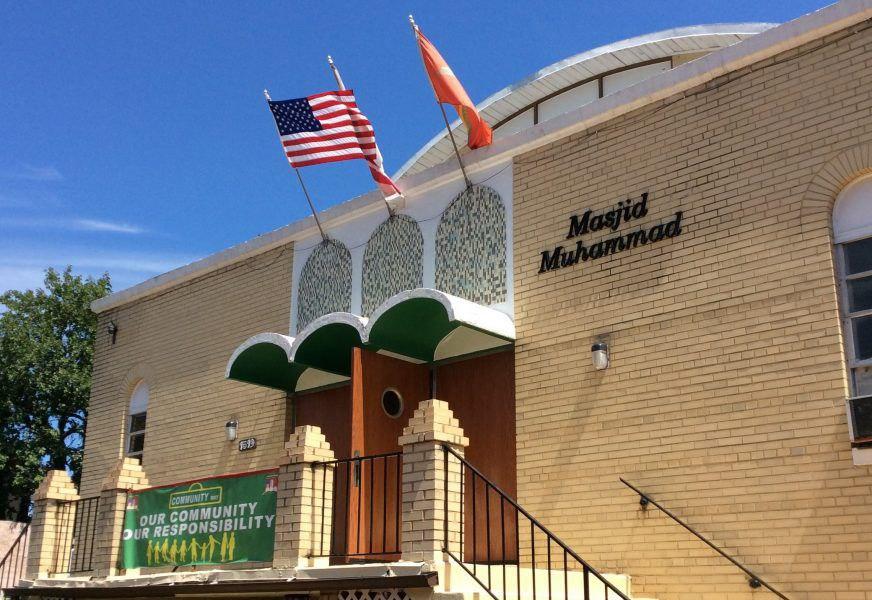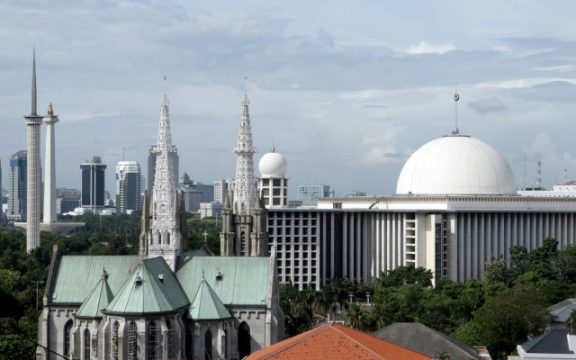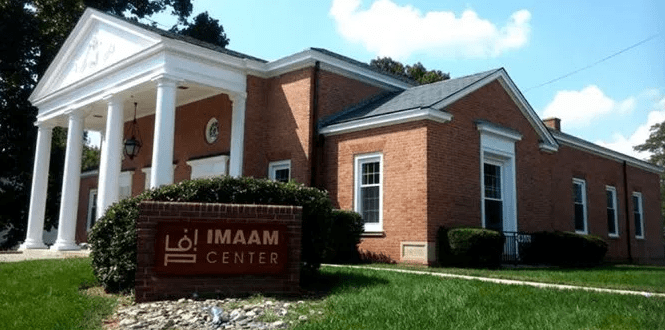Dating back to the mid of 1930s, Masjid Muhammad or it is also known as The Nation’s Mosque (of America) is a representative of the oldest established Muslim community in Washington DC and America. This mosque was built by the descendants of enslaved, African Americans and African-Muslims. Its initial founder, the Honorable Elijah Muhammad took several years to talk and held meetings with the local people before finding a space form them to pray in congregation.
However, things do not go smoothly. The small community had to move to several locations to avoid potential conflicts with the local Caucasians. In 1942, they faced another problem when Elijah and several of his followers were arrested for refusing to register for military service. Although the community was sustained, this brought a halt for their da’wah. It was not until the 1950’s, they could find a permanent location which then helping the spread of Islam in the area and across the country.
The masjid construction itself was done by many volunteers. Some donated their money, some other cooked dinners, and sold what they have to generate income from outside of the community.
Malcolm X at that time was also helping them by donating around 1,400 USD and raised more money from his campaign. After tireless efforts for many months, in December 1960 Elijah, that had released from prison, came to Washington DC and attended the masjid dedication ceremony.
Fifteen years after the building completion, Elijah passed away and his son, Warith Deen Mohammed replaced his father’s leadership. He received overwhelming support from the community and began to implement more universal da’wah strategies, including admission of Caucasians and other races into the community. This far-reaching changes has transitioned Masjid Muhammad from an exclusive community into the mainstream practice of proper universal Islam following the teachings of Prophet Muhammad.
Another significant action was taken when Warith appointed Khalil Abdel Alim to be the first (resident) imam. He brought a new spirit into the community which reflects the values of holy Quran. Some policies of truthfulness and openness was implemented. He began to open wider communication with other Muslim communities across the nations as well as established sincere relationship with Christian, Jewish, and other religious groups in Washington DC. Since then, Masjid Muhammad has become the leader in interfaith relationships to help communities overcoming the cultural, social, and religious divide.
Located just off of New Jersey Ave. NW on 4th Street, masjid Muhammad now has been opened not only for Muslims to pray, but also for public to learn more about Islam and its practices. Since, September 11, 2001, the American Muslim community has gone through a journey of social roller coaster. Public opinion on Islam and Muslims is changing to more negative with each survey. Hate crimes against Muslims and their mosques are increasing across the country. Islamophobia has become, unfortunately, mainstream in the past five years. Following the way US current president portray their Muslim citizens, it is common nowadays to see negative comments and online bully against Muslim community.
While many prominent figures have shown their disagreements toward the US leader, the Muslim community realise that they also need to take more action. Seizing the moment, the US Council of Muslim Organizations (USCMO) announced on December 21, 2015, major educational, outreach and civic empowerment initiatives to address growing Islamophobia in America and to enhance national harmony through the promotion of freedom and justice. The USCMO initiatives include: a One America Campaign to improve understanding of American Muslims and Islam; a Million Voters Registration Drive prior to the 2016 presidential election; and a National Open Mosque Day designed to help increase interactions between American Muslims and citizens of other faiths and backgrounds.
The USCMO initiatives has been followed by the Masjid Muhammad community which committed to promote peace through interracial and interfaith dialogue and cooperation. Every week, Masjid Muhammad also held many other programs, from women empowerment activities, job skills training, to senior citizen support. All of them are designed to help public, particularly Muslim fellows to maximize their potentials.
Comparing to other great mosques in the world, Masjid Muhammad may not be the best in decorations and structure. But its spiritual dedication and public service are shown that this masjid has brought their local community to the next level of spirituality.
![Islami[dot]co](https://en.islami.co/wp-content/themes/jambualas/images/logo.png)


